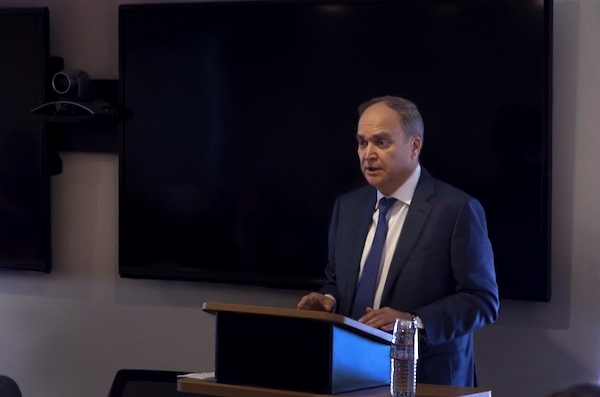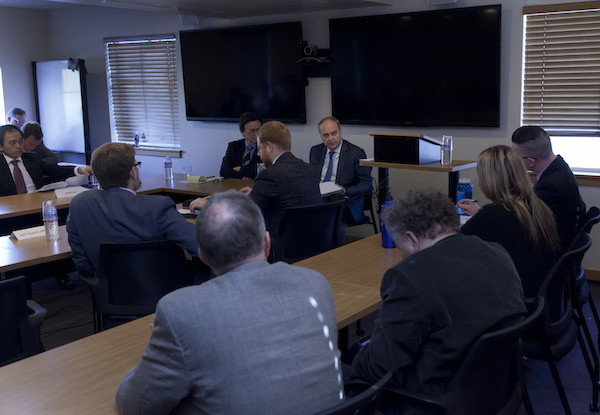New Russian Ambassador to US Meets with Students

Students from the Middlebury Institute’s Nonproliferation and Terrorism Studies program had the opportunity to discuss a wide range of current issues with Russian Ambassador to the United States Anatoly Antonov at an event hosted by the Institute’s James Martin Center for Nonproliferation Studies (CNS) on Thursday. Antonov replaced Sergey Kislyak as the Russian Federation’s top diplomat in the United States in August this year. A former deputy minister of foreign affairs and deputy minister of defense, he has had a long career in diplomacy in Russia, specializing in arms control issues.

Antonov wrote his dissertation on nuclear nonproliferation and was introduced by CNS Director Dr. William Potter. The two have known each other for close to a quarter of a century. Antonov discussed many of the most pressing issues in the field today including international treaties, the Iran nuclear deal, North Korea’s missile program, and the role of nongovernmental organizations such as CNS. “Frankly, I need your papers and exercises,” he said, adding that academics often gave him ideas, some good, others not so good, and still others to keep for the future when the time is right.
“We believe a continuation of steady compliance with the deal is in the mutual interest,” Antonov said of the Iran nuclear deal, emphasizing that the International Atomic Energy Agency has “no complaints about Iran’s compliance.” If Iran acquired nuclear weapons, he added, it would be impossible to prevent its neighbors in the Middle East from doing the same.
Responding to a question about North Korea from Tracy Lyon MANPTS ’18, Antonov told the audience of about 50 students and faculty that he did not see any evidence in his talks with U.S. officials that “they have decided on a plan” regarding how to respond to an escalating situation. The Russian perspective, he said, “is that a solution will not be achieved with intensified sanctions, increased military activities near North Korea’s borders, and threats of using military force including nuclear weapons.” Antonov suggested that North Korea would not be persuaded to come to the negotiation table until there was a halt in joint U.S. military exercises on the Korean peninsula.
While nuclear disarmament in principal is not something Antonov says he disagrees with, he said that nations like the Russian Federation rely on the deterrent effect of nuclear weapons for their national security. Unlike his predecessor, he says he has a difficult time getting meetings with U.S. elected officials in Washington D.C. “They are scared to meet with me.”
For More Information
Jason Warburg
jwarburg@middlebury.edu
831-647-3516
Eva Gudbergsdottir
evag@middlebury.edu
831-647-6606
